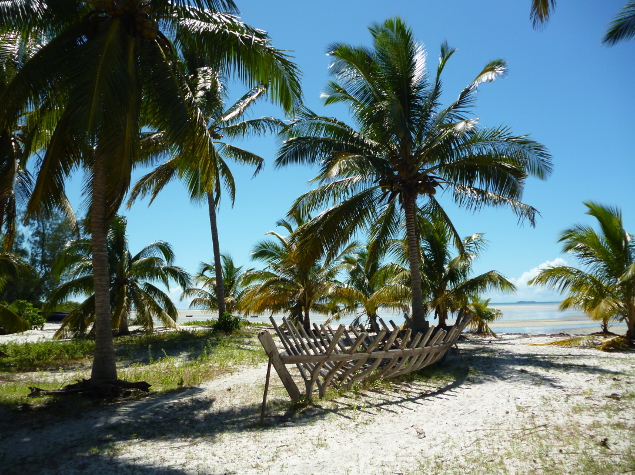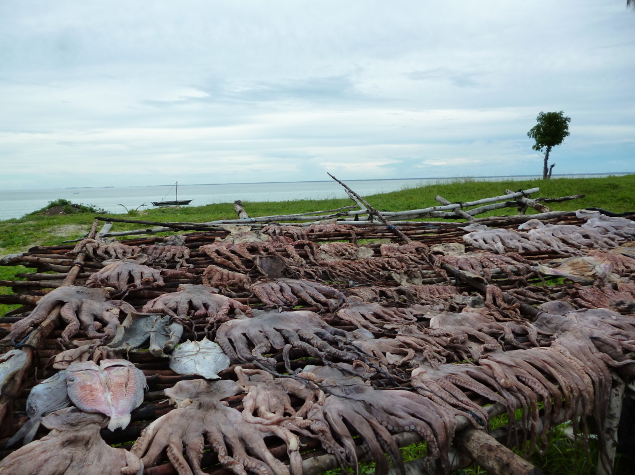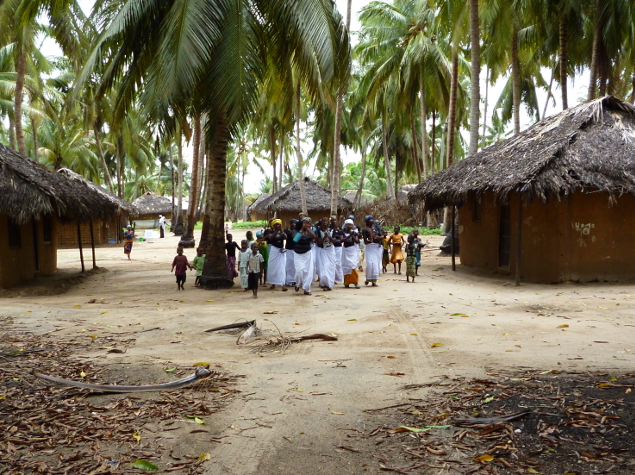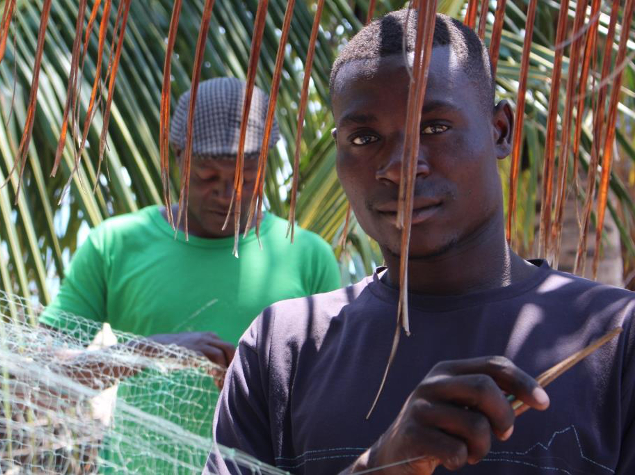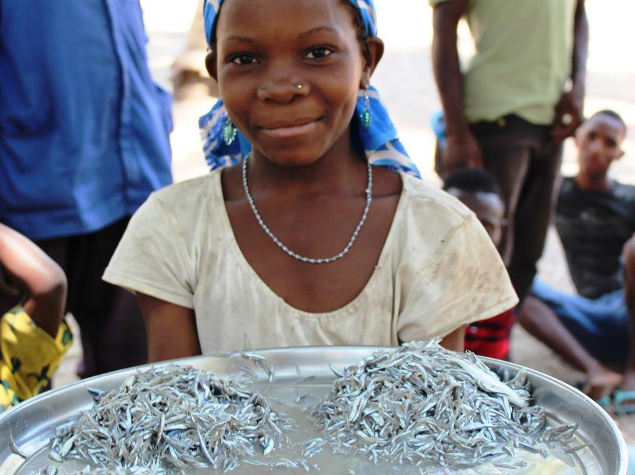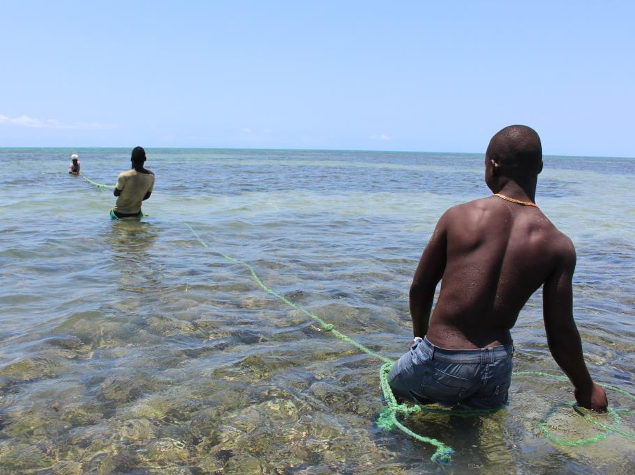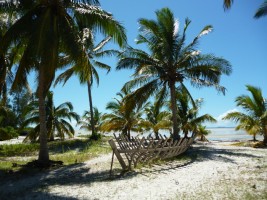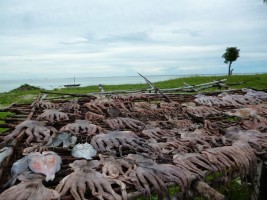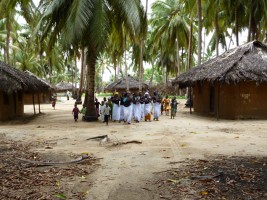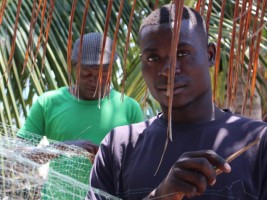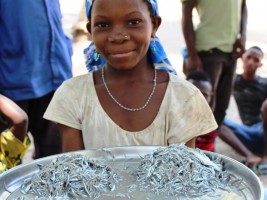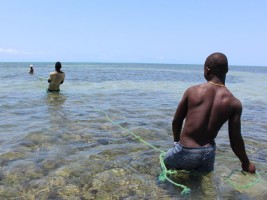Securing marine biodiversity through sustainably-financed and locally-managed marine areas in coastal Mozambique – “Our sea, Our life”
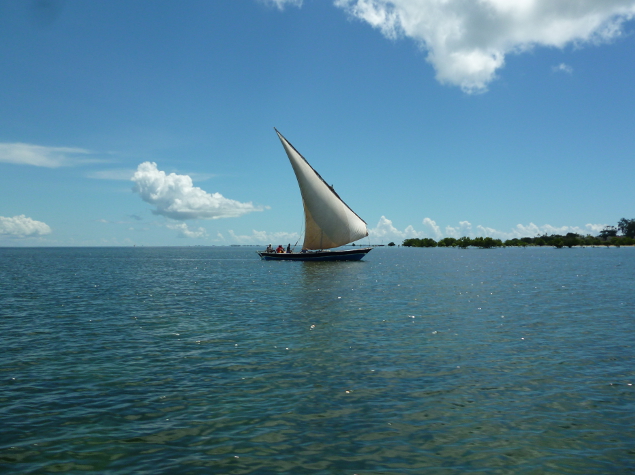
The project aims to develop and pilot a replicable approach to support coastal communities in northern Mozambique in the establishment of locally-managed marine areas (LMMAs). It will ensure local institutions (CCPs) and communities more generally have the resources, training and additional income sources to allow them to engage effectively in sustainable fisheries management.
The project will work with a total of six pilot communities. It will place an emphasis on maintaining and increasing women fishers’ and harvesters’ voice in fisheries decision-making.
Fondation Ensemble’s contribution towards the OSOL project enabled to bring an additional component to fisheries catch monitoring, based on a mobile app, implemented and cofinanced by Blue Venture, thus raising by an extra 400 K€ the initial 2,5 M€ budget, co-financed by the European Union (80%) and Darwin initiative (14%).
Thus, the project implementation is divided in 5 objectives:
- Fisheries co-management with local communities and migrant fishers.
Drawn on successes and failures of similar initiatives in other Western Indian Ocean countries, the project will establish 6 best practices LMMAs between Rovuma River and Moçimboa with appropriate access and benefit sharing rules. The co-management of LMMAs will operate through Conselho Comunitario de Pesca (CCPs – formally recognised community fisheries councils). The action will take a participatory approach to help CCPs establish and implement management plans, including no-take zones to conserve marine biodiversity.
- Sustainable financing mechanisms.
The project will incentivise and sustain management of LMMAs through the establishment of a PES-based (Payments for Ecosystem Services) trust-fund and mobilisation of private funds from tourism operators, gas companies and other private sector actors. The action will take a participatory process to set performance targets that trigger the release of finances from these trust funds. Approximately 40% of the trust funds will cover operating and management costs, and 60% will form direct incentive-based payments to local resource users. Clear guidance on these mechanisms to government agencies and ministries will establish an institutional framework to support the wider replication of this model.
- Village savings and Loan association & Sustainable enterprise.
The project will support the development of sustainable livelihoods by establishing Village Savings and Loan Associations (VSLAs), and will help to create market linkages and provide technical training on tried and tested approaches.
- Participatory catch monitoring and dissemination.
ZSL and its partners will empower the resource user groups in catch monitoring at low cost through a mobile participatory fisheries catch reporting system (open access software, via an android platform on smartphone or tablet app) developed for monitoring the landings of broader-scale multi-species fisheries across different ecosystems and habitats. This will help to tackle the data deficiency in artisanal fisheries in Mozambique and to raise coastal communities’ awareness of the status of their natural resources in order to guide management efforts and performance based financing mechanisms. The resource user groups will actively record catch-monitoring data. This participatory monitoring system will be replicated elsewhere in Mozambique through evolving partnerships with national authorities, fisheries organizations and NGOs.
- Evaluation and Replication.
It is expected the project will evaluate and communicate on the impacts. Monitor biophysical condition of marine resources and socioeconomic indicators, using a Before-After-Control-Impact design that builds on the partners’ previous work in the area, provides an opportunity to evaluate the impacts of the action. This monitoring will build on expertise of all partners, and lessons learnt, in particular on setting-up LMMA’s, will be communicated through regional and international fora, and in the primary literature.
To find out more, please visit the webpage dedicated to this project on the ZSL website.
Check out the testimony of Biancha, VSLA member within the project.
Check out this video presenting the project :

